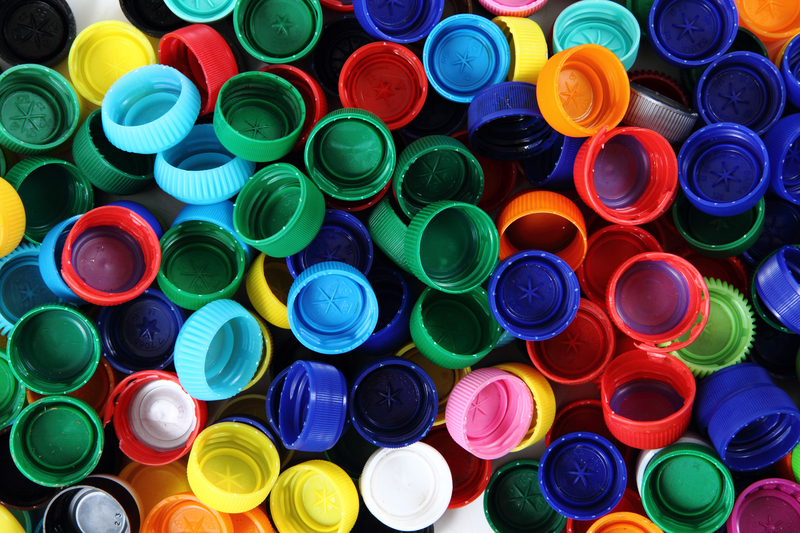Find Out Where You Can Safely Throw Out Your Old Chargers
In today's digital era, almost every household has a drawer filled with old and unused chargers. Whether it's for your outdated smartphone, retired laptops, or forgotten tablets, these electronic accessories tend to pile up over time. Unfortunately, simply tossing them in the trash can have harmful consequences to our environment. In this comprehensive guide, discover how and where you can safely throw out your old chargers while staying responsible and eco-friendly.
Why Should You Properly Dispose of Old Chargers?
Electronic waste (e-waste) is one of the fastest-growing waste streams globally. Chargers, cords, and cables contain plastics, metals, and sometimes even hazardous substances such as lead and mercury. Improper disposal can lead to:
- Soil and water pollution: Toxic substances can leach into soil and groundwater.
- Resource wastage: Chargers hold valuable metals like copper which can be recycled and reused.
- Landfill accumulation: Non-biodegradable parts increase landfill size unnecessarily.
By finding the right place to safely throw out your old charger, you help protect the environment and conserve resources.

Best Places to Dispose of Old Chargers Safely
If you're unsure where you can safely throw out your old chargers, here are several eco-friendly options:
1. Local Electronic Recycling Centers
Most communities have dedicated e-waste recycling facilities designed to process and safely break down electronics, including chargers. Here's how to utilize these centers:
- Search Online: Use terms like "e-waste recycling center near me" or "where to recycle old chargers" in your preferred search engine.
- Check Local Municipal Websites: Cities often have designated drop-off stations for electronic waste.
- Review Accepted Items: Confirm that your chosen center accepts chargers and similar cables before visiting.
Benefits: Electronic recycling centers are equipped to dispose of components safely while ensuring metals and plastics are reused wherever possible.
2. Retailer Take-Back and Trade-In Programs
Several major electronics retailers offer in-store recycling programs where you can drop off old chargers along with other small gadgets. Common options include:
- Best Buy: Accepts most chargers, cables, and even batteries for recycling, typically right inside the store's entrance.
- Staples: Allows up to seven electronic items per customer per day for safe recycling, including old charging cables.
- Apple Store: Offers recycling for a variety of Apple and non-Apple branded chargers; some locations even provide trade-in credits for eligible devices.
Pro Tip: Some retail chains run e-waste collection events in partnership with manufacturers, so keep an eye out for these opportunities to dispose of electronics like chargers for free.
3. Manufacturer Recycling Initiatives
Many charger manufacturers support global or local recycling schemes. For example:
- Apple's Recycling Program: Send in your old Apple chargers and cables by mail or drop them off at any Apple Store.
- Samsung's Take-Back Program: Offers mail-in recycling for old Samsung devices and accessories, including chargers.
- Other Brands: Visit your charger brand's official website for information on their recycling program - brands like HP, Dell, and Lenovo actively encourage electronic recycling.
Using manufacturer-backed recycle programs ensures chargers are dismantled safely, and reusable parts go back into the production cycle.
4. Municipal Hazardous Waste Collection Events
Many municipalities host special hazardous waste collection days, where residents can bring various forms of e-waste, including old chargers, for safe disposal. Here's how to take advantage:
- Check Your City's Waste Management Calendar: These events are usually advertised online or in local newsletters.
- Follow Event Instructions: Sort your chargers and cables; some events ask for specific packaging or grouping of electronic waste.
- Ask About Acceptable Items: Not all hazardous waste events accept the same items, so clarify in advance to avoid wasted trips.
These events are a great opportunity to dispose of large volumes of unwanted electronics responsibly.
5. Mail-In Recycling Services
If you don't live near a recycling center or retailer, consider mail-in e-waste recycling services:
- Call2Recycle: Accepts small electronics and chargers via postal service. Visit their website for drop-off locations and mail-in options.
- TerraCycle: Specializes in recycling hard-to-recycle items, including all types of wires and cords. Purchase prepaid boxes, load your chargers, and send them for recycling.
Note: Always check for shipping restrictions and instructions to ensure your package arrives safely.
6. Donate Usable Chargers
If your charger is still in working condition, donating can extend its life and help those in need. Consider these donation options:
- Schools and Libraries: Many learning institutions need extra chargers for public use or classroom gadgets.
- Charity Shops and Thrift Stores: Organizations like Goodwill and The Salvation Army accept functioning chargers and sell them at affordable prices.
- Local Community Centers: Check with tech-support charities that focus on digital inclusion in your area.
Make sure chargers are clean, clearly labeled, and still in good working order before donating.
What Not To Do When Disposing of Old Chargers
- Do NOT throw chargers in the regular trash. Standard waste disposal often leads to chargers winding up in landfills, risking chemical leakages.
- Never incinerate chargers. Burning electronic waste releases toxic fumes harmful to human health and the environment.
- Avoid illegal dumping. Disposing of e-waste in unauthorized sites can lead to fines and lasting ecological damage.
Each of these actions can have severe long-term consequences. Always seek out safe charger disposal methods instead.
Why Not Just Keep Old Chargers?
While it might seem harmless to keep a collection of old chargers, there are compelling reasons to let them go:
- Unclutter Your Space: Chargers take up room and are often tangled or forgotten.
- Stay Safe: Faulty or frayed chargers can be fire hazards if plugged in by mistake.
- Encourage Sustainable Consumption: Recycling helps close the loop on finite resources, making tech more sustainable for the next generation.
If you're not using your old chargers and they're gathering dust, it's time to responsibly recycle them.
Preparing Your Chargers for Recycling
Before dropping off or mailing out your old chargers and cables, prepare them as follows:
- Remove Batteries: If your charger or accessory contains a battery, separate and recycle it according to battery disposal guidelines.
- Bundle Cords Neatly: Secure loose wires with twist-ties or rubber bands to prevent tangling.
- Label If Necessary: Some programs ask you to clearly mark what kind of device each charger belonged to.
Proper preparation helps the recycling process and ensures your donation or recycling is accepted without issue.
Frequently Asked Questions: How to Throw Out Old Chargers Safely
What should I do if there's no recycling center near me?
If local recycling centers are unavailable, use mail-in recycling services or take advantage of store drop-off programs from retailers like Best Buy or Staples.
Can I recycle chargers with my curbside collection?
Most municipal recycling programs do not accept chargers with usual curbside recycling. Always verify with your local waste management or opt for specialized e-waste drop-off.
Is it safe to donate third-party or generic chargers?
Yes, as long as they are functional and have accurate voltage/amperage ratings clearly marked. Ensure the charger is in good working order and label it to identify the device compatibility.
Do chargers need to be separated by type when recycling?
Many recycling centers ask for separation by type (USB, power adapters, laptop chargers, etc.), but always follow specific instructions provided by the collection point.
What happens to chargers after recycling?
Chargers are dismantled and valuable metals are extracted. Plastics are processed for reuse whenever possible. Hazardous materials are handled safely, preventing environmental contamination.

Tips for Reducing Future Charger Waste
- Invest in Universal Chargers: Devices using a single charging standard (like USB-C) can reduce the number of new chargers needed over time.
- Buy Only as Needed: Hold off on purchasing replacements until absolutely necessary.
- Share or Lend Chargers: Within families or offices, share chargers to minimize duplication.
- Support Brands with Eco-Friendly Policies: Look for brands that design chargers with easier recyclability and offer robust take-back programs.
These habits help minimize the environmental impact of electronic accessories and keep waste to a minimum.
Conclusion: Making the Safe Choice for the Planet
Finding out where to safely throw out old chargers makes a real difference to the planet and your community. Whenever possible, choose recycling, donation, or take-back programs over throwing chargers in the trash. Not only will you keep hazardous materials out of the landfill, but you'll also help reclaim valuable resources for future electronics.
Whether you opt for retailer collection bins, municipal e-waste recycling events, or donation drives, every responsible action counts. Take the time to organize your old chargers today and turn this small habit change into a lasting positive impact!
- Remember: Responsible e-waste disposal starts with your choices--make recycling your old chargers the norm.
Ready to start? Search for "where can I throw out old chargers safely near me" and pick the solution that fits your lifestyle best. Our planet--and future generations--will thank you for it.